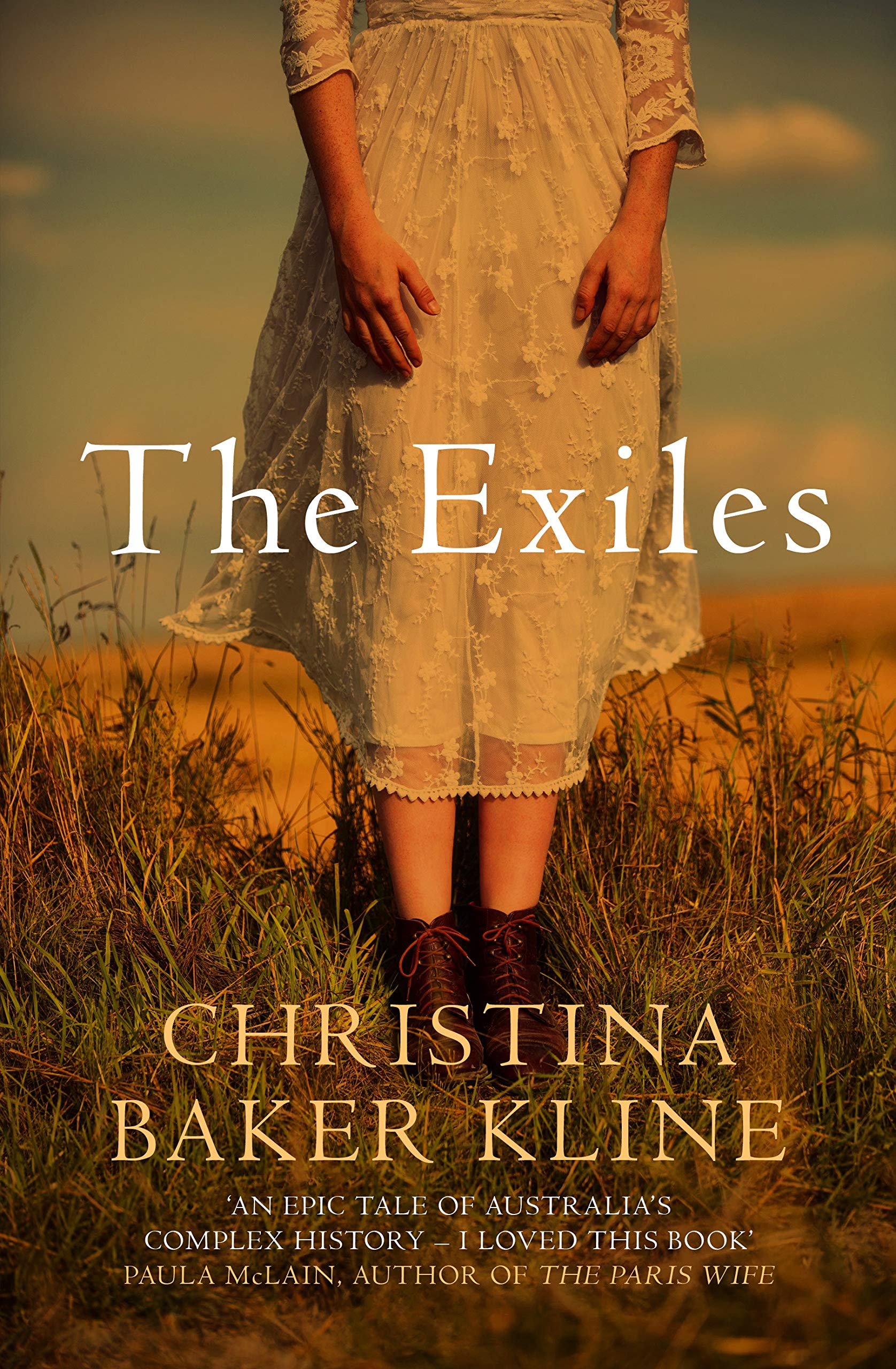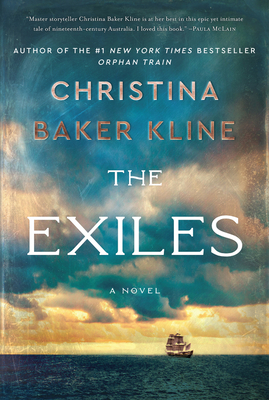Comment: I got interested in this book mainly for the cover of a different edition (included below), which seemed pretty evocative. Somehow it captivated me and when I purchased the paperback book, the editions with that cover were simply more expensive, that is why I've settled for this one. Of course, I was also intrigued by the theme and even hoped for a bit of romance, although that isn't part of the list of labels.
In this historical fiction, we follow Evangeline Stokes as she is convicted of a crime, which she is innocent of, and how her journey takes her into a convict ship in the 1840s, destined to Australia. Evangeline discovers she is pregnant at the same time she is accused of stealing and is so easily convicted, but she still hopes to do her sentence and return to England one day. In prison and on the ship she learns precious lessons, makes friends such as Hazel, who was caught stealing and has a mother who abandoned her. At the same time, in what is now Tasmania, an Aboriginal young girl is taken from her people by the British governor of the island, as an experiment. How will the experience of the changes in their lives influence these characters?
I'm debating if I should include spoilers or not, because in my opinion, something happens in the middle of the story which is directly related to the blurb's information and that kind of caught me by surprise.
Well, I think it's best to explain my reaction, therefore:
Spoilers included!
The original cover did seduce me and I imagined that Evangeline and Hazel would become friends while on the ship and their lives in the penal colony would be harsh but they would help each other and, I assumed, they would end up living in the island for the rest of their lives. In a way, my idea wasn't too far off, but I must say that a detail disappointed me bit. It turns out that, despite the narrative perspective on Evangeline as main character, she dies drowned in the Indian ocean after a sailor with a grudge pushes her.
I was quite surprised, where would the "redemption" feature be if the character is dead? Obviously, she had just given birth and Hazel takes care of the baby girl Evangeline had delivered, so that is that. But it felt tremendously unfair this had to be the narrative choice, why use Evangeline as a character to follow so specifically? If feels like a failed drama moment...
I should add that, to me, the reading of this book was both good and bad. Good in the sense that the story has its interest, it's easy and fluid and we want to root for the characters, we want them to succeed in their challenges and want them to overcome the obstacles in their way. Whether this had romance or not, the author could have added that personal touch without loosing any of the factual aspects included in the story which was certainly her goal.
Of course, part of my disappointment is due to the author's choices and I'd have preferred something else to have been done with this plot. But I also keep thinking, why not a well researched fiction work instead, if the aim was to be so factual and focused on realistic events? It's totally correct to chose this, but then why center this in fictional characters, why not use real ones, documented and fictionalize things without going too far? By using a romanced fictional base, I feel we lost on a possible more engaging novel, even with the terrible things which would have been used anyway.


Good lord, the spoiler--killing of one of the supposed main characters? oh no, nope, no, vade retro, Satanas, not today.
ReplyDelete::ahem:: Sorry, that's one of my main pet peeves.
I can absolutely see why the original cover seduced you, it's beautiful, and as you say, evocative.
Regarding how more bad things than good happen, and how that's more realistic: Beverly Jenkins, a Black author, writes genre romance with Black protagonists, much of it set in the U.S. during slavery; she doesn't skimp on the realism, but she focuses on the joy, and it makes for much more powerful stories that don't lie (if that makes sense).
Hi! Yes, I've read one of her books and I can see what you mean. It can be a possibility, to showcase a brighter or hopeful side of things. I don't think it would diminish what the author was aiming for if she had used more obvious happy/positive elements.
DeleteReading this book made me google the penal colonies in Tasmania, and I've seen some places are now World Heritage sites, if it wasn't so far I might wish I could visit...